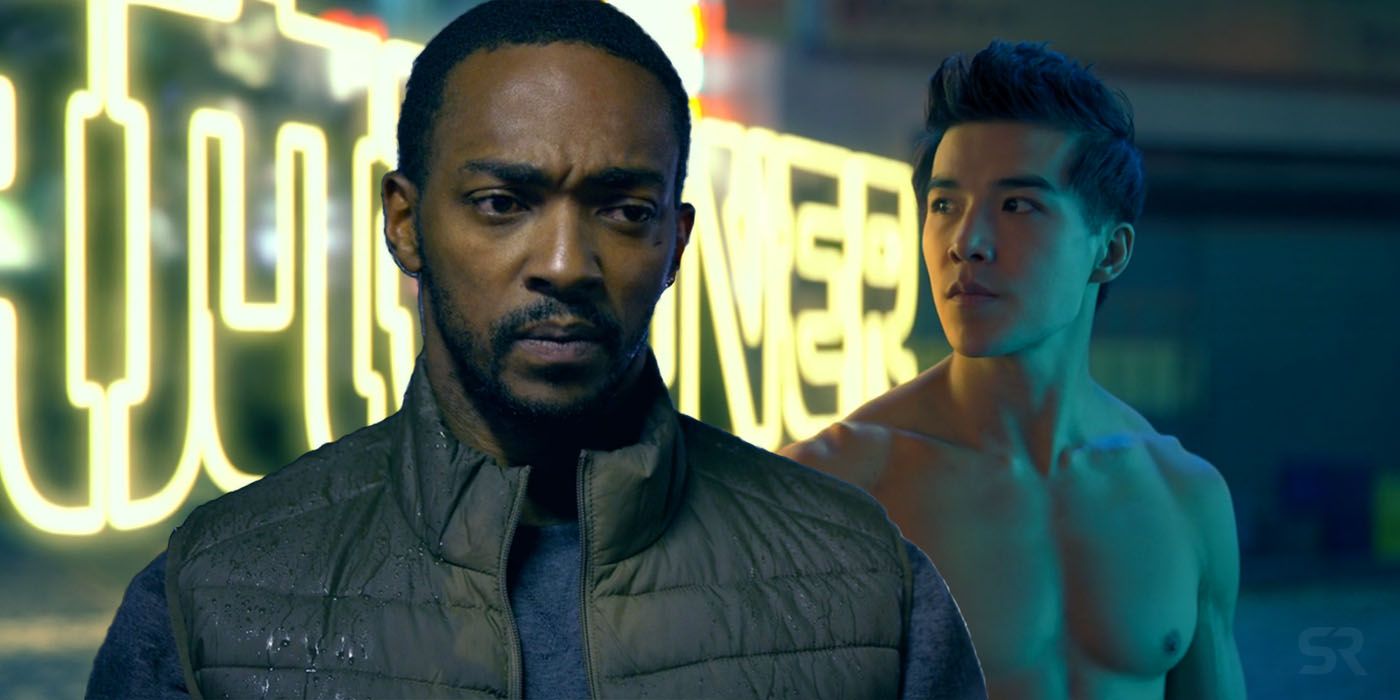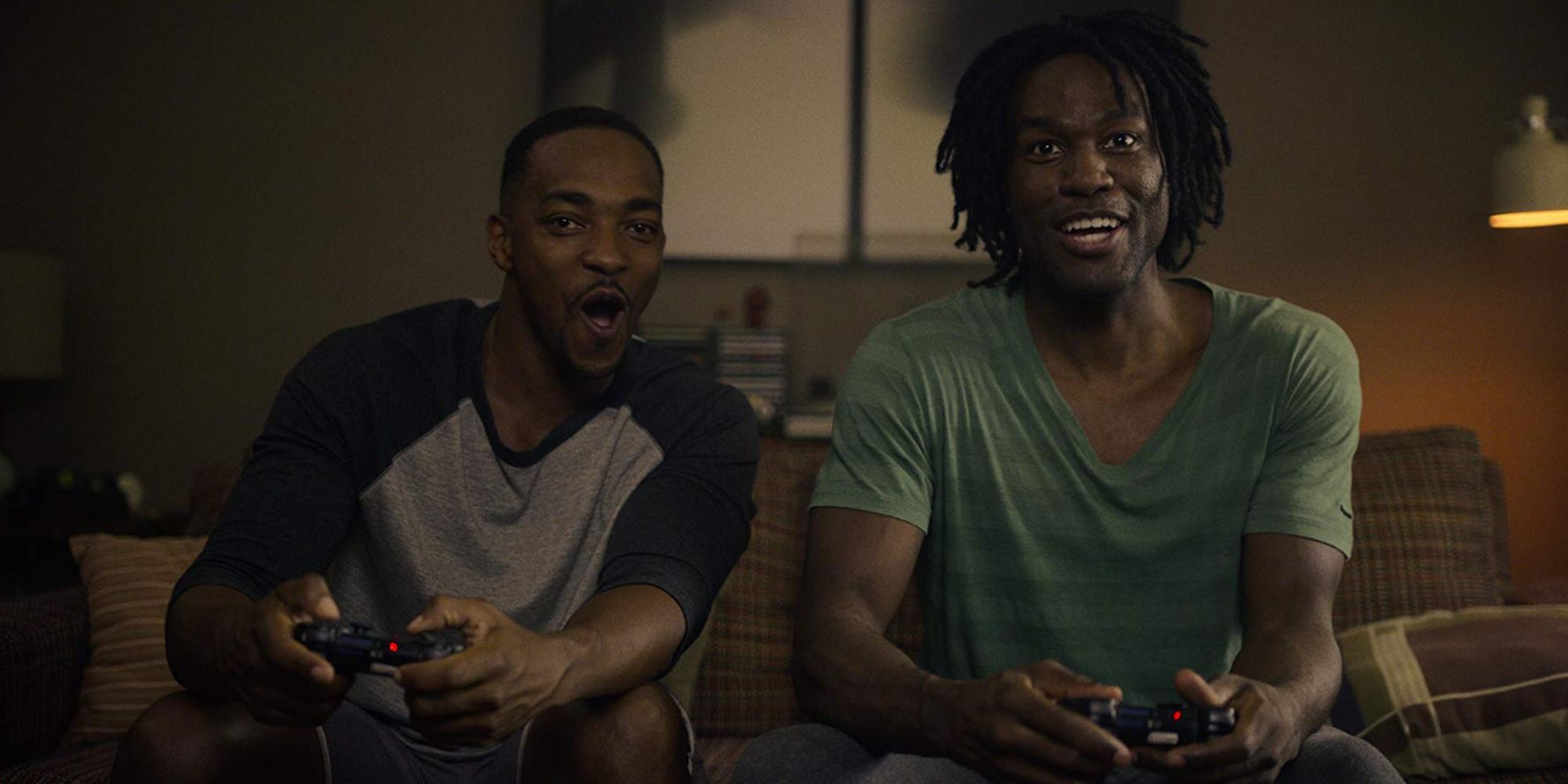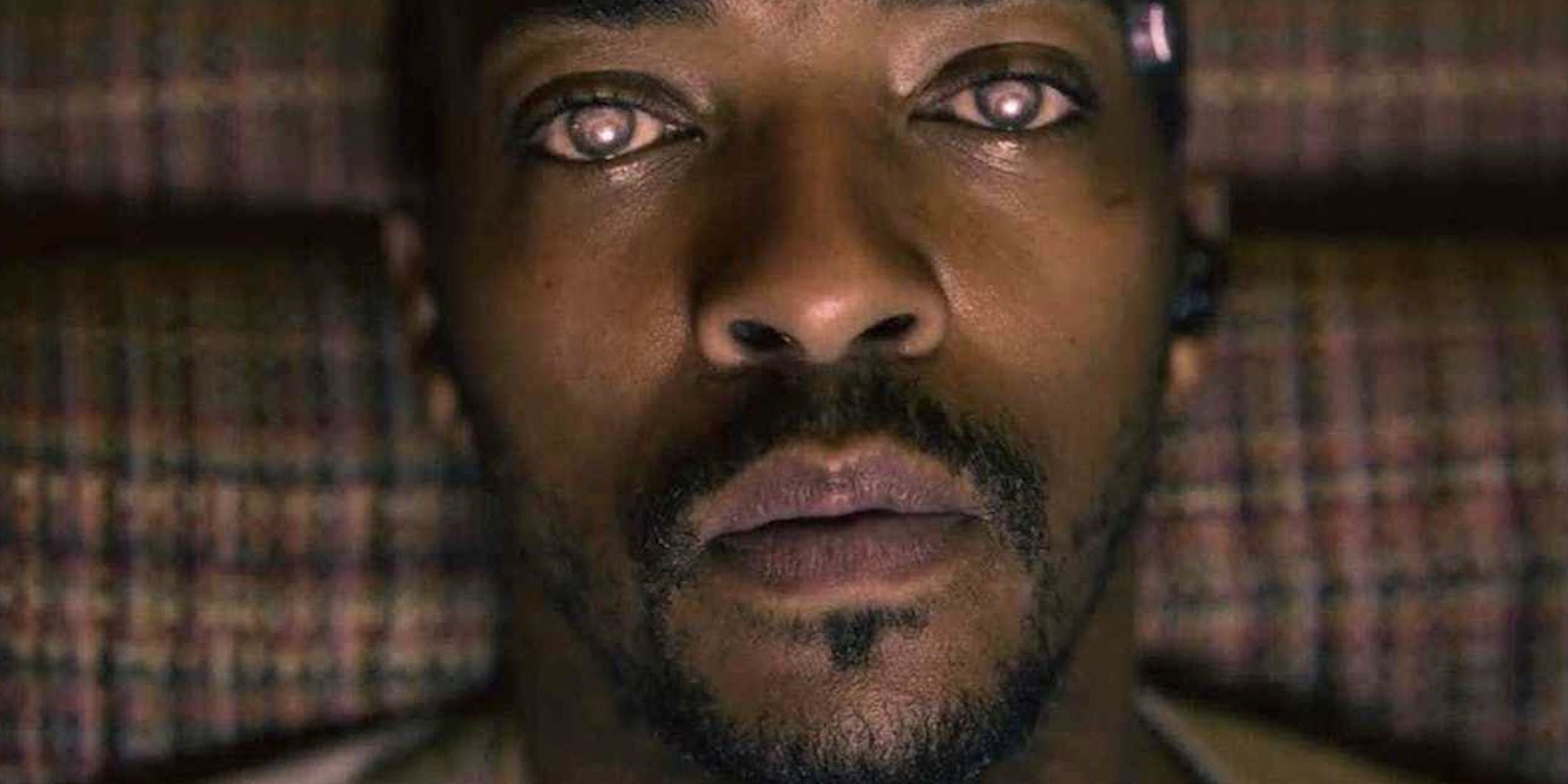The Black Mirror "Striking Vipers" ending helps to make it one more complex entry into the anthology series. The season 5 episode stars Anthony Mackie and Yahya Abdul-Mateen II as two old friends who reconnect via the latest version of their favorite video game - only their male bonding goes a little too far in the virtual reality environment. After a surprising early turn, "Striking Vipers" careens towards a strangely bittersweet ending.
The episode follows Danny (Mackie) who is trying for a second baby with his wife, Theo (Nicole Baharie) while also reconnecting with his old friend Karl (Abdul-Mateen). They decide to stay in touch by playing a new virtual reality fighting game called Striking Vipers X. However, their fight using the player characters Roxette (Pom Klementieff) and Lance (Ludi Lin) quickly turns sexual, changing Danny and Karl's relationship and adding a challenging element in Danny's marriage. With Black Mirror season 6 premiering, fans may be interested in a deeper dive into the Black Mirror "Striking Vipers" ending.
What Happens in Striking Vipers' Ending
Black Mirror "Striking Vipers" ending picks up following a rift in Danny and Karl's relationship. After a seven-month time jump, Theo is heavily pregnant and Danny's life is back on track, but Karl is miserable. His relationship with Danny has made it impossible to find satisfaction in either real-life relationships or by having sex with other players in the game. Their affair rears its head again when Theo, unaware of the rift between them, invites Karl over for dinner as a surprise for Danny's 39th birthday. While Theo is out of the room, Karl tells Danny that he's been unable to find anything as good as what they had together, and begs him to play Striking Vipers X one last time.
Danny is unable to resist, and that night he and Karl have sex in the game again - ending with Karl (as Roxette) saying, "I love you." This causes an argument, and Danny tells Karl to meet him in the real world, behind a club where they used to hang out. Karl arrives expecting that Danny will want to fight, but instead Danny says that they need to kiss - as themselves - to figure out if their feelings for each other are real, or whether they only exist in the game. After psyching themselves up, they kiss, and both admit that they feel nothing.
Danny says that the matter is settled, but Karl says that it's different in the game and that there's no way he can just forget about it. They start to brawl, until the police arrive and both of them are arrested. Theo, upon picking Danny up from jail, demands to know what he and Karl fought about. Another year passes, and Danny is having another birthday barbecue. Theo has had their baby, and their marriage appears to be on solid ground.
After the party, Theo gives Danny a box containing the VR disc for the game console, and he gives her a box for her wedding ring - both to be returned in the morning. Theo puts away her wedding ring for the night and goes out to a bar to find a stranger to have a one-night stand with. Meanwhile, Danny meets up with Karl in the game. An "X" on the calendar makes it clear that Theo and Danny have made a deal: each of them gets to live out their sexual fantasies with another person, just one night a year on Danny's birthday.
Are Danny And Karl Gay Or Bisexual?
After the first time they have sex, Karl (as Roxette) jokes, "That's us gay now." Danny (as Lance) replies that it "doesn't feel like a gay thing." Throughout "Striking Vipers" they struggle with the question of whether having sex with each other in the game using avatars means that they're no longer heterosexual, or whether their relationship exists in the real world the same way it does in the game. At dinner, Karl tells Danny that having sex with other players as Lance just isn't the same, and that he desperately tried sex with every other character in the game to try and recapture their magic.
"I f**ked a polar bear and I still can't get you out of my mind," he laments. The problem that Karl and Danny are having is in trying to attach a traditional label like heterosexual or bisexual or homosexual to the scenario of two people having sex as different people in a virtual reality environment, which has never existed before in human history. "Striking Vipers" makes it fairly clear that Danny and Karl aren't gay or even bisexual in real life; when they try kissing in the real world - as Danny says, to try and get a "foothold" on things - neither one of them feels anything.
Moreover, as Roxette and Lance they're still having heterosexual sex, not gay sex. So what's going on? Despite its sci-fi premise, "Striking Vipers" actually touches on a real-world puzzle: the contrast between people's sexuality in real life and their tastes in pornography. A 2016 study published in Archives of Sexual Behavior found that 21% of straight men surveyed had watched male-on-male porn in the last six months. With the advent of the internet it has become possible for people to watch, read about, and role-play all kinds of sexual fantasies without ever interacting with another person in real life.
Through these Black Mirror characters, "Striking Vipers" posits that not only do these things have little to do with what a person wants in the real world, but that their real world sexuality might actually become less important (and less satisfying) than the vast array of things that are possible in a virtual environment.
The Real Meaning Of Striking Vipers' Ending
The title Black Mirror refers to the black reflective surface of a phone, TV, or computer screen, and every episode of the show deals in some way with how technology has impacted everyday life, and how it could continue to impact our lives (with potentially horrible consequences) in the future. Most of the episodes have a sci-fi premise that's rooted in something that already exists - like season 4's "Hang the DJ," which took dating apps and their algorithms to their logical extreme. "Striking Vipers" deals with the idea of pornography and virtual sex experiences making people desensitized to real sex.
However, the episode is more nuanced than that. The ending of "Striking Vipers" deliberately parallels Karl and Danny having sex in the game with Theo going out and fulfilling her fantasy of sleeping with a stranger - something that existed long before the internet came along. In fact, this is actually how the episode starts, with Danny and Theo at an earlier point in their relationship, role-playing as strangers in a club to spice up their relationship. It's worth noting that Danny and Karl's dissatisfaction with their real-world relationships exists before they start playing Striking Vipers X; Danny was bored with his settled-down life, and Karl couldn't connect with his much-younger girlfriend.
The game may have become the only thing that satisfied thing, but it was dissatisfaction in the first place that pushed them towards having sex in the game. Whether or not the ending of "Striking Vipers" is happy or sad depends on your perspective. While most episodes of Black Mirror portray technology as a dangerous thing with potentially disastrous implications, there are also episodes like "San Junipero" that show the positive potential of technology and virtual worlds. On the one hand, seeing Karl living a life alone with just a cat for company, excitedly waiting for the one night of the year that he can experience the intimacy he craves, definitely has a melancholy edge to it.
There's also some tension in the scene where Theo and Danny hand over their boxes, indicating that this is a compromise that has been made to save their marriage. Indeed, Black Mirror creator Charlie Brooker characterized it as a "pragmatically romantic ending" in an interview with EW. But ultimately the ending, scored by Della Reese's "Not One Minute More," indicates that Danny and Karl have stopped agonizing over what their relationship means and what it says about them - and perhaps the audience should too.




